
Dr. Alejandro Martín
Universidad Politécnica de Madrid
Alejandro is Assistant Professor at Universidad Politécnica de Madrid. His main research interests are Deep Learning, Cybersecurity and Language Models. He has been visiting researcher at University of Kent and University of Córdoba. Besides has participated in an important number of international conferences as reviewer and organizer, as reviewer and Guest Editor in international journals, and in a large number of research projects. He is the PI of the CIVIC project.
Deep Learning, Cybersecurity, Natural Language Processing, Language models.

Dr. David Camacho
Universidad Politécnica de Madrid
David Camacho is currently a Full Pro- fessor at the Computer Systems Engineering Department of the Technical University of Madrid (Spain), and the Head of the Applied Intelligence & Data Analysis group. He received a Ph.D. with honors in Computer Science from Universidad Carlos III de Madrid in 2001. He has published more than 300 journals, books, and conference paper
His research interests include Machine Learning, Social Network Analysis, Data Mining, Evolutionary Computation, Swarm Intelligence, or Video Games, among others.

Dr. Javier Huertas
Universidad Politécnica de Madrid
Javier Huertas Tato is an Associate Researcher at Universidad Rey Juan Carlos Computer science Department under project CYNAMON. He received a PhD in Computer Science from Universidad Carlos III de Madrid working on applied machine learning techniques and evolutionary computation methods. Currently he participates at AIDA research group at Universidad Politécnica de Madrid on Deep neural networks and ensemble methods. His current research efforts are concerned with Natural Language Processing and Transformer models.
Machine Learning, Evolutionary Computation, Neural Networks.

Dr. Víctor Rodríguez Fernández
Universidad Politécnica de Madrid
Dr. Victor Rodriguez-Fernandez is an assistant professor in the school of computer systems engineering of Universidad Politécnica de Madrid (UPM). He holds a PhD in computer science at the Autonomous University of Madrid. Currently he is part of the Applied Intelligence and Data Analysis (AIDA) research group at UPM, where he is involved with several projects funded by the European Commision. His research interests revolve around practical applications of deep learning, with a special emphasis on time series data.
Deep learning, time series.

Álvaro Huertas García
Universidad Politécnica de Madrid
Álvaro Huertas Garcia did his undergraduate studies in Biotechnology at Universidad de Salamanca. He then did his MSc in Bioinformatics and Computational Biology at Universidad Autónoma de Madrid. His MSc research project focused on developing an automatic system to counter COVID-19 misinformation and infodemic through semantic similarity.
Computational Biology, Health Informatics, Bioinformatics, Natural Language Processing.

Guillermo Villar
Universidad Politécnica de Madrid
Guillermo Villar Rodríguez is a Postgraduate Researcher on Data Journalism and Data Science for CIVIC against misinformation and a PhD student. Previously, he gained experience in Data Journalism during his internships at LAB RTVE and EL PAÍS and his collaborations for a branded-content webpage. After his university degrees in Journalism (with the Award Premio Extraordinario) and Audiovisual Communication and his Master (Título Propio) in Data Journalism, he moved to the Netherlands to study an official Master’s degree in Data Science and Society to learn about data-led practices on a computational level for journalism.
Villar’s current interests include data-driven and computational journalism, data science, data visualization, NLP and SNA.

Dr. Gema Bello Orgaz
Universidad Politécnica de Madrid
Dr. Gema Bello-Orgaz is an assistant professor in the Universidad Politécnica de Madrid (UPM). She holds a PhD degree in computer science from Universidad Autonoma de Madrid. Currently, she is involved with Applied Intelligence and Data Analyisis (AIDA) research group at UPM.
Bello-Orgaz’s research interests are in the area of Social Network Analysis, Graph-based algorithms, Evolutionary Computation, and their applications in science and industry.

Ángel Panizo
Universidad Politécnica de Madrid
Ángel Panizo LLedot is a teaching assistant in the school of computer systems engineering of Universidad Politécnica de Madrid (UPM). Has a B.Sc. in Computer Science from Universidad Complutense de Madrid, and a M.Sc. in Artificial Intelligence from Universidad Politécnica de Madrid. Nowadays, he is a Computer Science Ph.D. candidate at Universidad Autónoma de Madrid and and is also involved with AIDA interest research group at ETSISI-UPM, his main research interests are related to Clustering; Graph-based algorithms, especially focus on time-evolving graphs; Social Data Analysis; and Bio-inspired methods.
Social Networks Analysis, Bio-inspired algorithms, Dynamic graph-based algorithms.
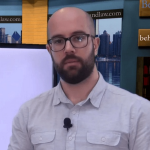
Javier Torregrosa
Universidad Politécnica de Madrid
Javier Torregrosa is a junior researcher in the Universidad Politécnica de Madrid (UPM). He has a B.Sc in Psychology, two M.Sc in Criminology and Crime Analysis and a M.Sc in Statistics for Social Sciences. Currently, he is a Computer Science Ph.D. candidate at Universidad Politécnica de Madrid and is also involved with AIDA research group at ETSISI-UPM.
Torregrosa’s main research interests include the application of different computer science techniques (such as Social Network Analysis or Natural Language Processing) to the study of social phenomena, such as extremism.

Dr. Carolina Moreno Castro
Research Institute on Social Welfare Policy
(POLIBIENESTAR) Universitat de València
Full Professor of Journalism and member of the Institute on Social Welfare Policy (POLIBIENESTAR) at the University of Valencia.
During the last decade, she has been leading the ScienceFlows group at the University of Valencia, from where she currently coordinates and leads projects of the national research program and European calls (H2020 and Erasmus+). She is currently the coordinator of the CONCISE project (H2020-SwafS-19-RIA-2018-2019), PERSIST_EU (2018-1-ES01-KA0203-050827), NoRumourHealth and ESMODA-ECO (RTI2018-099663-B-I00). All of her research has had a significant impact on media due to her great interest in the transfer of the results to society. At this point, she has been collaborating in the knowledge transfer with the Spanish Foundation for Science and Technology (FECYT), and with the Organization of Ibero-American States (OEI). Moreover, she has carried out research stays at international centres such as Cornell University (Ithaca, New York); the Austral University (Valdivia, Chile); the Quilmes University and the National University of Tres de Febrero (both of them, in Buenos Aires, Argentina); and at Harvard University (Cambridge, Massachusetts).
Science communication, risk communication, science journalism, methods and techniques of social research, social perception of science and technology, science dissemination and communication, popularisation.

Dr. María del Mar Grandío Pérez
Universidad de Murcia
María del Mar Grandío (Ph.D, 2006) is Associated Professor at the University of Murcia (Spain). She is currently member of the Management Committee of the COST Action INDCOR (Interactive Narrative Design for Complexity Representations) (2019-2023). She has been a member of the Management Committee of the COST ACTION, “Transforming Audiences, Transforming Societies” (2010-2014) and the COST ACTION “New Possibilities for print and digital media” (2012-2016). Two six-year research periods recognized by the CNEAI (2007-2012) (2013-2018). Award for Knowledge Transfer at the University of Murcia 2017. She has completed research stays in the United States (University of Missouri, 2001; University of California Los Angeles, 2004; University of Maryland, 2009, Georgetown, 2019), United Kingdom (University of Aberystwyth, 2005; London School of Economics, 2010), Canada (University of British Columbia-Vancouver, 2012) and Finland (University of Helsinki, 2015). Her work has been published in international journals such as The International Journal of Audience Research or Media Studies and in editorials such as Routledge, Springer or Peter Lang. Index h = 18 in Google Scholar with 1046 citations.
Digital consumption, transmedia narratives, media literacy.

Dr. José Manuel Noguera Vivo
Universidad Católica de Murcia
Associate Professor at Catholic University of Murcia (UCAM), Spain, where he also is Head of Communication Sciences Department since 2010. Previously, he was teaching at USEK (Spain) and UAA (Mexico). As main researcher of the research group “Comunicación, Política e Imagen” (GICOMPI), his fields of interests are at the intersection of media, technology and society, with more than fifty scientific publications so far. He is the single author of several books about social media, audience participation and digital journalism, the last one is Generación Efímera (2018). As a key speaker for many international institutions (ONA, FOPEA, CELAP, UNIR, SICARM…), currently, he is focusing on media innovation, audience participation, political polarization and hate speech in social media. He obtained the Drago Award (2014) by Spanish journal Latina and his main international research stays have been in Mexico, Canada, Sweden, Finland and USA. Reviewer for many institutions such as ANEP, ACPUA or ECREA, he is also Science Communication Manager of the COST Action INDCOR (Interactive Narrative Design for Complexity Representations) and Local Organizer of the Spanish section of the Online News Association (ONA) since 2020, developing the innovation, networking and training among the Spanish digital journalists.
Audience participation and innovation in digital journalism; new media and transmedia storytelling; polarization in social media, digital narratives and internet culture.

Dr. Áurea Anguera de Sojo Hernández
Universidad Politécnica de Madrid
(in progress)
(in progress)

Dr. Celia Fernández-Aller
Universidad Politécnica de Madrid
Lecturer in Law and Ethics at the Technical University of Madrid since 1998. PhD in Law and Technology.
Postgraduate research on areas of interest, and publications in the field of privacy and human rights based approach (Martín-Ruiz, Fernández Aller, Portillo, Del Barrio (2017) “Developing a System for Processing Health Data of Children Using Digitalized Toys: Ethical and Privacy Concerns for the Internet of Things Paradigm”. Science and Engineering Ethics.
Two patents in EDUCERE project. Educere (2014-16), An Ecosystem for Ubiquitous Detection and Early Stimulation of Children with Developmental Disorders (Ministry of Economy and Competitiveness of the Spanish Government).
Member of the Advisory Board of Fundación Alternativas and the Board of Directors of ONGAWA, Ingeniería para el Desarrollo Humano (NGO).
Honorary status as visiting professor at Bristol University, UNED and UCA El Salvador.
Fernández-Aller research interests are interdisciplinary studies on human rights based approach, data protection and legal implications of Big Data, Artificial Intelligence and the Internet of Things.

Dr. Francisco Utray
Universidad Carlos III de Madrid
Francisco Utray is Senior Lecturer at the Communication Department at the Universidad Carlos III de Madrid, where he teaches from 2004. Member of TECMERIN Research Group, he currently develops a research projects on Accessibility of Disabled People to media digital platforms in the Spanish Center for Subtitling and Audiodescription (CESyA).
Communication, accessibility, media production.

Dr. Raúl Magallón
Universidad Carlos III de Madrid
Raúl Magallón Rosa is associate professor of Communication Theory at the Department of Communication, Universidad Carlos III de Madrid. He is author of Unfaking news: cómo combatir la desinformación [Unfaking news: how to tackle disinformation] (Pirámide, 2019), Desinformación y pandemia. La nueva realidad [Disinformation and pandemic. The new reality] (Pirámide, 2020) and other published articles in peer-reviewed journals on the topic of fake news and fact-checking.
Journalism, fact-checking, misinformation.
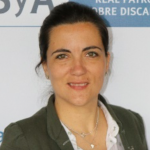
Dr. Mónica Souto
Universidad Carlos III de Madrid
Dr. Mónica Souto holds a PhD in Library and Information Science from the Carlos III University of Madrid. She is currently developing her research at the Spanish Centre for Subtitling and Audio description working in audiovisual communication and digital television environments.
Television, accessibility, disability.

Dr. Hartmut Koenitz
University of Amsterdam
Koenitz’s research interests are at the intersection of art, culture, history, and technology.

Dr. Cláudia Silva
University of Lisbon
Cláudia Silva is an Invited Assistant Professor at the Instituto Superior Técnico, University of Lisbon, Department of Informatics Engineering, and at the Nova FCSH U. Lisbon, Department of Communication. She is also a Research Fellow at ITI/LARSyS. Silva received a Ph.D. in Digital Media from the Nova University of Lisbon within the context of the University of Texas at Austin-Portugal international doctoral program (May 2016). For her doctoral dissertation, she worked with Latinx communities in Austin, Texas, USA, for four years, conducting ethnographic work in two Texan non-profit organizations, where she taught different age groups how to create location-based storytelling.
Currently, she is conducting interdisciplinary research at the intersection of Human-Computer Interaction and Digital Media. In Portugal, she has worked as an Arts Journalist for the Portuguese national newspaper Público. Cláudia has also been published in the prestigious Brazilian newspaper Folha de São Paulo, and other regional and local Brazilian publications. She received an MA in Journalism from the Nova University of Lisbon, in Portugal (2009), and a BA in Social Communication (Journalism) from the Catholic University of Minas Gerais, in Brazil (2005).
Some of Silva’s research interests are on digital media, locative media, location-based storytelling and mobile media, underserved and local communities, and new technologies applied into social innovation and journalism. At the moment, her main project, entitled MOC-UP, intends to engage different stakeholders in the participatory design of a child-targeted location-based system for wayfinding and placemaking.

Dr. Manuel Sánchez Montañés
Universidad Autónoma de Madrid
(in progress)
Computing sciences and artificial intelligence.

Dr. Mª Victoria Luzón García
Universidad de Granada
M. Victoria Luzón received her B.Sc. degree in Computer Science from the University of Granada in 1992. She received her Ph.D. in Industrial Engineering from the University of Vigo in 2001. She is currently an associate professor in the Software Engineering Department at the University of Granada. Her main research interests include sentiment analysis, Natural Language Processing and the study of novel learning techniques such as federated learning.
Social Network Analysis, Natural Language Processing, Federated Learning.

Dr. Eugenio Martínez Cámara
Universidad de Granada
Eugenio Martínez Cámara is a postdoctoral fellow from the Juan de la Cierva program at the University of Granada. He received a B.Sc. degree in Computer Science and Management and M.Sc. degree in Computer Science from the University of Jaen, Spain, in 2008 and 2010 respectively. He received his Ph.D. in Computer Science in 2015 at the University of Jaen. Dr. Martínez Camara also worked as postdoctoral researcher at the Technische Universitat Darmstadt, Germany. He serves as a member of the editorial board of the journal Procesamiento del Lenguaje Natural. His current research interest are related to different Natural Language Processing (NLP) tasks, the application of deep learning in NLP, and the study of novel computing paradigms as Federated Learning.
Natural Language Processing, Sentiment Analysis, Information Extraction, Deep Learning, Federated Learning.

Dr. Antonio González Pardo
Universidad Rey Juan Carlos
Antonio González is a Lecturer at Universidad Rey Juan Carlos de Madrid. He received a Ph.D. in Computer Science from Universidad Autonoma de Madrid in 2014. His main research interests are related to Computational Intelligence (genetic algorithms, PSO, SWARM intelligence, etc), and Machine Learning Techniques. The application domains for his research are Social Networks, Complex Graph-based problems and Optimisation problems. His current research focused on understanding complex networks, like the ones emerging from social media environments, particularly in the context of crisis situations caused by radical organisations.
Computational Intelligence, Social Network Analysis, Graph-based problems.

Dr. Erik Cambria
NTU Singapore
Erik Cambria is the Founder of SenticNet, a Singapore-based company offering B2B sentiment analysis services, and an Associate Professor at NTU, where he also holds the appointment of Provost Chair in Computer Science and Engineering. His research focuses on the ensemble application of symbolic and subsymbolic AI to natural language processing tasks such as sentiment analysis, dialogue systems, and financial forecasting.
Affective Computing, Sentiment Analysis.
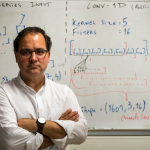
Dr. Paulo Novais
Universidade do Minho
Full Professor of Computer Science at the Department of Informatics, the School of Engineering, the University of Minho (Portugal) and a researcher at the ALGORITMI Centre in which he is the leader of the research group ISLab – Synthetic Intelligence lab, and the coordinator of the research line Computer Science and Technology (CST).
He started his career developing scientific research in the field of Intelligent Systems/Artificial Intelligence (AI), namely in Knowledge Representation and Reasoning, Machine Learning and Multi-Agent Systems. His main research aim is to make systems a little smarter, intelligent and also reliable.
Former president of APPIA (the Portuguese Association for Artificial Intelligence) between 2016 and 2019, Senior member of the IEEE (Institute of Electrical and Electronics Engineers), and of the executive committee of the IBERAMIA (IberoAmerican Society of Artificial Intelligence), and Coordinator of the Scientific Committee of the Gulbenkian Scholarship Program “New Talent in Artificial Intelligence” of the Calouste Gulbenkian Foundation.
He has served as an expert of several institutions such as EU Commission and FCT (Portuguese agency that supports science, technology and innovation).
Novais’ interest, in the last years, was absorbed by the different, yet closely related, concepts of Ambient Intelligence/Ambient Assisted Living, Conflict Resolution, Behavioural Analysis and the incorporation of AI methods and techniques in these fields.

Dr. Mourad Oussalah
University of Oulu
(in progress)
(in progress)
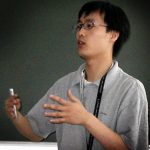
Dr. Jason J. Jung
Chung-Ang University
Jason J. Jung is a Full Professor in Chung-Ang University, Korea, since September 2014. Before joining CAU, he was an Assistant Professor in Yeungnam University, Korea since 2007. Also, he was a postdoctoral researcher in INRIA Rhone-Alpes, France in 2006, and a visiting scientist in Fraunhofer Institute (FIRST) in Berlin, Germany in 2004. He received the B.Eng. in Computer Science and Mechanical Engineering from Inha University in 1999. He received M.S. and Ph.D. degrees in Computer and Information Engineering from Inha University in 2002 and 2005, respectively.
His research topics are knowledge engineering on social networks by using many types of AI methodologies, e.g., data mining, machine learning, and logical reasoning. Recently, he has been working on intelligent schemes to understand various social dynamics in large scale social media.

Dr. George Baciu
Hong Kong Polytechnic University
(in progress)
(in progress)

Dr. Julio Hernández-Castro
University of Kent
Julio Hernández-Castro is mostly interested in Computer and Network Security. I am specially keen in Cryptography and Crytptanalysis, Steganography and Steganalysis, Data Loss Prevention and RFID Security.
Computer Security, Randomness

Dr. Julián Fiérrez
Universidad Autónoma de Madrid
Signal and image processing, AI fundamentals and applications, HCI, forensics, and biometrics for security and human behavior analysis

Dr. Aythami Morales
Universidad Autónoma de Madrid
Aythami Morales received his M.Sc. degree in Telecommunication Engineering in 2006 from ULPGC. He received his Ph.D degree from ULPGC in 2011. He performs his research works in the BiDA Lab at Universidad Autonoma de Madrid, where he is currently an Associate Professor. He has performed research stays at the Biometric Research Laboratory at Michigan State University, the Biometric Research Center at Hong Kong Polytechnic University, the Biometric System Laboratory at University of Bologna and Schepens Eye Research Institute.
He is author of more than 100 scientific articles published in international journals and conferences, and 4 patents. He has received awards from ULPGC, La Caja de Canarias, SPEGC, and COIT. He has participated in several National and European projects in collaboration with other universities and private entities such as ULPGC, UPM, EUPMt, Accenture, Union Fenosa, Soluziona, BBVA.
His research interests include pattern recognition, machine learning, trustworthy AI, and biometrics.

Dr. Rubén Tolosana
Universidad Autónoma de Madrid
Ruben Tolosana received the M.Sc. degree in Telecommunication Engineering, and his Ph.D. degree in Computer and Telecommunication Engineering, from Universidad Autonoma de Madrid, in 2014 and 2019, respectively. In 2014, he joined the Biometrics and Data Pattern Analytics – BiDA Lab at the Universidad Autonoma de Madrid, where he is currently collaborating as a PostDoctoral researcher.
Since then, Ruben has been granted with several awards such as the FPU research fellowship from Spanish MECD (2015), and the European Biometrics Industry Award (2018). He is author of several publications and also collaborates as a reviewer in high-impact conferences (WACV, ICPR, ICDAR, IJCB, etc.) and journals (IEEE TPAMI, TCYB, TIFS, TIP, ACM CSUR, etc.). Finally, he is also actively involved in several National and European projects.
His research interests are mainly focused on signal and image processing, pattern recognition, and machine learning, particularly in the areas of DeepFakes, HCI, and Biometrics.
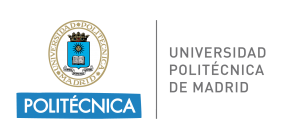



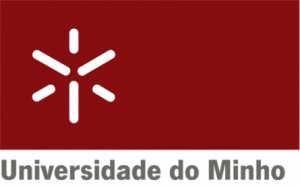






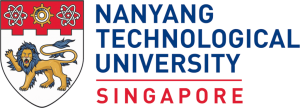



Applied Intelligence and Data Analysis research group (AI+DA)
Universidad Politécnica de Madrid – Campus Sur
C/ Alan Turing, s/n (Carretera de Valencia, Km 7)
28031 Madrid, Spain
alejandro.martin@upm.es
